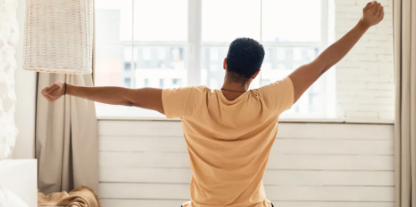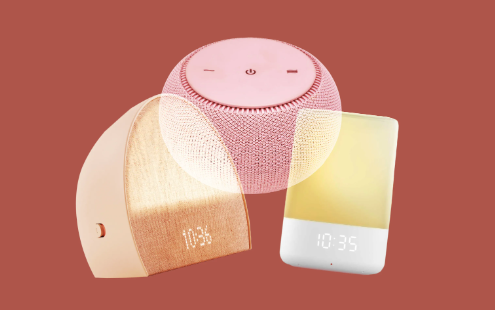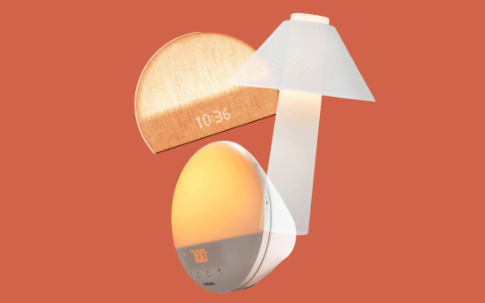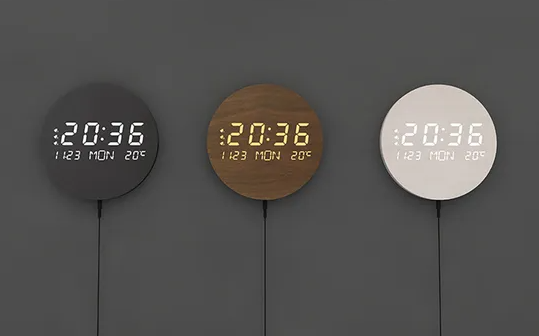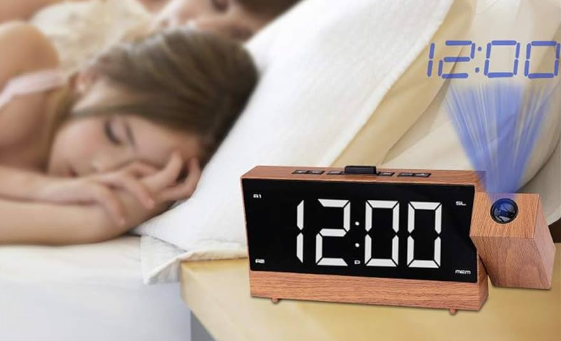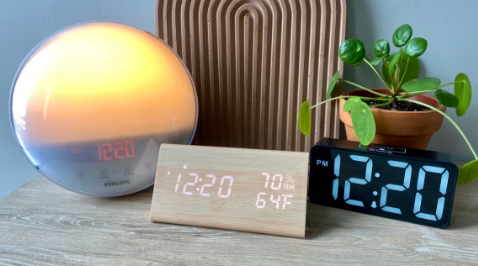Why Modern Homes Are Switching to Smart Digital Alarm Clocks in 2026
Jan 04, 2026
Home lifestyle technology is evolving faster than ever, and one of the most interesting changes in recent years is how people wake up and manage their daily time. Traditional alarm clocks are no longer enough for today’s households. In 2026, more and more families are upgrading to Smart Digital Alarm Clocks, driven by new lifestyle needs, sleep awareness, design trends, and modern technology integration.
As an experienced manufacturer and innovation-driven brand contributor in the clock industry, Tongyuan Clock together with VirtueTime Electronics continues to study global market behavior and consumer demands. The shift toward smart digital alarm clocks is not a coincidence. It reflects a deeper change in how people value sleep, convenience, design, and emotional comfort at home.
The Rise of Smart Home Lifestyle
Smart living is now part of everyday life. From lighting and home security to entertainment and climate control, homes are becoming more intelligent and responsive to human needs. Alarm clocks have followed the same trend.
Modern smart digital alarm clocks are no longer just tools to wake people up. They provide:
More personalized wake-up experiences
Better sleep support systems
Integration with modern lifestyle habits
Cleaner and more aesthetic design styles
Reliable digital accuracy and convenience
For many families, upgrading to a smart alarm clock is part of building a better sleeping and waking environment.
Sleep Quality Matters More Than Ever
Over the past few years, awareness of sleep health has significantly increased. People now understand that quality sleep affects productivity, mood, health, learning ability, and overall well-being. This is one of the biggest reasons smart digital alarm clocks have become popular in 2026.
Compared to old mechanical clocks or basic digital designs, modern smart clocks often include:
Adjustable brightness displays to protect eyes at night
Gentle or progressive volume wake-up systems
Sound options that reduce morning stress
Light-based wake-up assistance in some advanced models
More intuitive night visibility without disturbing sleep
With consumer expectations rising, Tongyuan Clock and VirtueTime place sleep comfort at the core of product design and engineering.
Aesthetic and Minimalist Home Design Trends
Interior design trends in 2026 continue to embrace minimalism, clean lines, and warm, modern aesthetics. Homeowners are choosing products that blend into their living environment rather than stand out awkwardly.
Smart digital alarm clocks fit this need perfectly because they are:
Sleek
Simple
Modern
Space-efficient
Whether used in bedrooms, children’s rooms, living areas, or hotel-style environments, the right digital alarm clock adds to the atmosphere instead of breaking it. Tongyuan Clock and VirtueTime focus heavily on visual harmony, material selection, surface finishes, and design proportions to meet these global design expectations.
Practical Features That Match Real Life
Aside from beauty and comfort, practicality is another strong reason why smart alarm clocks have grown in popularity.
Consumers appreciate features like:
Clear LED or LCD time display
Projection functionality in some models
USB charging ports for mobile devices
Stable daily operation and durability
Easy-to-use interfaces for both adults and seniors
These features simplify life, reduce dependency on smartphones at night, and create a more organized bedside setup.
Reduced Reliance on Smartphones for Sleep
Many families are intentionally trying to reduce mobile phone use in bedrooms. Exposure to screens before sleep affects sleep quality, and waking up to notifications can create anxiety. Smart digital alarm clocks offer a healthier alternative.
With independent alarm settings, lighting comfort, and stable timekeeping functions, they allow users to place smartphones away from the bed while still enjoying intelligent wake-up control.
Designed by Experience and Innovation: Tongyuan Clock and VirtueTime
Behind this industry shift are companies capable of understanding real-life needs and continuously pushing product development forward.
Tongyuan Clock, as a professional clock manufacturer, provides strong production capability, advanced structural engineering, precise quality control, and long-term reliability.VirtueTime Electronics contributes design innovation, market insight, consumer research, and product strategy to ensure products align with modern global lifestyles.
Together, they develop smart digital alarm clocks that combine functionality, appearance, technology, and emotional warmth, supporting OEM, ODM, brand customization, and global distribution needs.
A Strong Market Opportunity for Retailers and Brands
For distributors, retailers, Amazon sellers, and global partners, the rise of smart digital alarm clocks represents an opportunity. Demand is continuing to grow because:
Families want better sleep tools
Smart lifestyle products continue trending
Aesthetic design clocks enhance home interiors
Consumers are upgrading outdated bedside devices
Tongyuan Clock and VirtueTime support flexible customization, branding, feature optimization, color development, and long-term supply partnerships to meet different market strategies worldwide.
Conclusion
In 2026, modern homes are not simply choosing alarm clocks. They are choosing better sleep experiences, smarter functionality, and more beautiful living environments. This is why smart digital alarm clocks are replacing traditional ones across homes globally.
With deep manufacturing experience and innovative design capability, Tongyuan Clock and VirtueTime Electronics will continue delivering high-quality, thoughtfully designed smart alarm clock solutions for families, retailers, and partners worldwide.
Read More
